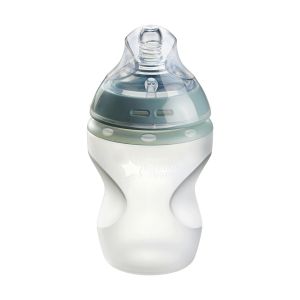
This is a demo store. No orders will be fulfilled.
Subscription orders can be cancelled at anytime. Standard delivery will be charged on each subscription order. Find out more about subscriptions.
They’re easy and fuss free
Your products are automatically sent to you
You save when you sign up for a subscription
You can cancel at any time
If you're a new parent, you may be wondering about the importance of colostrum for your baby.
Colostrum supports a baby's immune system, protects against infections, and promotes healthy development. Let's explore the benefits of colostrum and discover how best to collect it.
During the later stages of pregnancy, you start to produce breast milk. The exact time when this happens varies from one person to the next.
Colostrum is the first milk that you produce after giving birth. It's thick and sticky in consistency, usually yellow, clear, or milky-coloured, and rich in antibodies and nutrients that are essential for a newborn's health. Giving it to your newborn baby supports their immune system and development, and can help you establish a good breastfeeding routine from birth and beyond.
Colostrum is highly concentrated and produced in small amounts. Even just a small portion of your colostrum will be beneficial nutritionally for your baby, as their stomach is only the size of a marble when they're born.
Before you start antenatal expressing, you should make sure your hands are clean, and you will need sterilised oral syringes and a larger sterilised container. To collect your colostrum, follow these simple steps:
Antenatal hand expression of colostrum can help you feel more prepared for breastfeeding and means you have some nutrient-rich milk ready to give to your baby when they're born.
It's a great step for anyone who's pregnant, but it's particularly recommended for those who:
It can also help if your baby's likely to experience issues with their blood sugar levels or may struggle to feed after birth because they:
You may be told to avoid collecting your colostrum if you:
You can collect colostrum by hand when you're pregnant. You should only use your hands for expressing during pregnancy and it's recommended that you don't use a breast pump to express breast milk until after your baby has been born.
Before you begin to hand express and collect colostrum, be sure to speak to your midwife or a healthcare professional first. They can help make sure it's right for you and your baby and can answer any questions you have.
When you feel ready to get started, you can hand express for a few minutes once a day from the 36th or 37th week of your pregnancy. Over time, you can increase this until you're spending between five to 10 minutes a time gently expressing up to five times a day. You can then express as regularly as needed in the first few days after your baby arrives.
Once collected, your colostrum syringes can be dated, labelled, and stored in your freezer, ready to give to your baby once they arrive.
You can store your expressed colostrum syringes at the back of the fridge between 2��C and 4��C for up to 24 hours before you freeze it. It will last for up to 24 hours if kept in a cool bag with ice packs - when you're transporting to hospital, for example.
When you label your syringes, be sure to include:
To bring your expressed colostrum into the hospital when you have your baby, you will need:
When you're going to the hospital to give birth, you can place some of your frozen colostrum syringes in a re-sealable bag and put it inside a cool bag between a bag of crushed ice or some ice blocks.
Tell your midwife that you have colostrum with you when you arrive at the hospital. They will label it and store it in the fridge or freezer at the hospital for you.
Once they're born, some newborns struggle to breastfeed at first, and others are unable to maintain their blood sugar levels. In these situations, your expressed colostrum is the perfect first food for your baby.
Before you feed your baby, the syringe needs to be brought to room temperature. To do this, you can place the bag with the syringe fully into warm water. Your midwife will demonstrate how to use a small cup or syringe to feed it to your baby.
Having a small feed with colostrum helps give your newborn a boost in energy and blood sugar levels. It can also help to encourage them to breastfeed.
Hannah told us that "during the last few weeks of pregnancy, [she] was diligent in expressing colostrum ready for [her] boys planned arrival at 37 weeks." And Natasha said that she only "started having more knowledge of terminology like latching, colostrum and all the feeding terms, when [she] had [her] second child".
You should aim to hand-express colostrum twice a day from the 36th or 37th week of your pregnancy, for no more than 10 minutes per breast. If you're unsure, it's best to consult with a lactation consultant or your healthcare provider for personalised guidance.
Yes, it's possible to collect colostrum by hand from 36 weeks of pregnancy and you can express it up to three times daily. If you're expecting twins, you can start colostrum collection from 32 weeks of pregnancy.
Some people find that warmth helps them express colostrum, so try massaging your boobs with a warm flannel and expressing in the shower or bath. Overall, it's important to remember that any amount of colostrum will be beneficial to your baby. The amount produced varies greatly from one person to the next, so be patient with yourself.
Follow these simple steps to collect colostrum with a syringe: